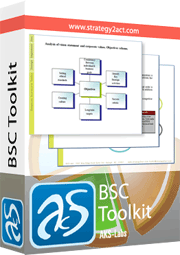In a world where digital technology is radically shifting the business
landscape, one of the biggest challenges for companies is rethinking
what parts of their business will continue to be valuable.
landscape, one of the biggest challenges for companies is rethinking
what parts of their business will continue to be valuable.
To find out how companies are adapting to changes brought on by
digital technology, George Westerman, a research scientist with the
MIT Sloan School of Management’s Initiative on the Digital Economy,
and Didier Bonnet, a senior vice president at Capgemini Consulting and
the executive sponsor for Capgemini’s digital transformation program,
studied more than 400 large companies around the world in industries
including manufacturing, hospitality and mining. (They left out the
software, media and technology industries because, although they
“get a disproportionate share of the attention, those industries account
for less than 10% of the U.S. economy.”)
digital technology, George Westerman, a research scientist with the
MIT Sloan School of Management’s Initiative on the Digital Economy,
and Didier Bonnet, a senior vice president at Capgemini Consulting and
the executive sponsor for Capgemini’s digital transformation program,
studied more than 400 large companies around the world in industries
including manufacturing, hospitality and mining. (They left out the
software, media and technology industries because, although they
“get a disproportionate share of the attention, those industries account
for less than 10% of the U.S. economy.”)
Some companies stood out as what Westerman and Bonnet term
“digital masters” — companies that “see digital not as a technology
challenge but as a transformation opportunity.” This mindset does not
always come easy for many managers. But it’s critical for moving forward.
“Many assumptions about what is possible and impossible, based on
experience with last century’s technologies, are no longer valid in thdigital world,” Westerman and Bonnet write.
“digital masters” — companies that “see digital not as a technology
challenge but as a transformation opportunity.” This mindset does not
always come easy for many managers. But it’s critical for moving forward.
“Many assumptions about what is possible and impossible, based on
experience with last century’s technologies, are no longer valid in thdigital world,” Westerman and Bonnet write.
In their article “Revamping Your Business Through Digital
Transformation,” In the Spring 2015 issue of MIT Sloan Management
Review, Westerman and Bonnet cite the example of PagesJaunes, the
French Yellow Pages company.
Transformation,” In the Spring 2015 issue of MIT Sloan Management
Review, Westerman and Bonnet cite the example of PagesJaunes, the
French Yellow Pages company.
PagesJaunes “realized a few years ago that selling ads in thick, yellow print directories would not remain viable for long in an age of Google and Yelp,” Westerman and Bonnet write. PagesJaunes used the
challenge to change its business model. Here are three steps it took, as
highlighted by Westerman and Bonnet:
challenge to change its business model. Here are three steps it took, as
highlighted by Westerman and Bonnet:
Question assumptions about what is valuable about your
strategic assets.
PagesJaunes did not assume that the strategic assets that brought it
success in the physical world would continue to be valuable in the
digital environment.
success in the physical world would continue to be valuable in the
digital environment.
“The company’s CEO saw an opportunity to redirect the business toward
digital services,” the authors write. Instead of selling ads in books, the
company could sell online advertising.
digital services,” the authors write. Instead of selling ads in books, the
company could sell online advertising.
Look to leverage assets that you have (and that fast-moving
digital startups do not).
PagesJaunes saw that there was an opportunity to help its small business
customers build digital capabilities such as Web pages and search engine
optimization. “Managers saw that the assets related to printing and
delivering books would have little use in the new model, but the
company’s knowledge of local businesses and the relationships its
salespeople had with business owners were potentially critical assets
going forward,” write Westerman and Bonnet.
customers build digital capabilities such as Web pages and search engine
optimization. “Managers saw that the assets related to printing and
delivering books would have little use in the new model, but the
company’s knowledge of local businesses and the relationships its
salespeople had with business owners were potentially critical assets
going forward,” write Westerman and Bonnet.
Use those assets to establish and grow a digital advantage.
“By leveraging existing data and retraining the sales force, the company is
attempting to reinvent itself in partnership with former competitor Google
Inc. and other born-digital companies,” write Westerman and Bonnet.
“Although the future of the global Yellow Pages industry is still uncertain,
PagesJaunes began ramping up digital revenues in France faster than
physical revenues were declining.”
attempting to reinvent itself in partnership with former competitor Google
Inc. and other born-digital companies,” write Westerman and Bonnet.
“Although the future of the global Yellow Pages industry is still uncertain,
PagesJaunes began ramping up digital revenues in France faster than
physical revenues were declining.”
For some companies, what's really called for is creative modification of
business models. “Transitioning to the new digital world does not
necessarily require you to completely discard the old in favor of the new,
” Westerman andBonnet note. “Examining your strategic assets through
a digital lens can help you identify which assets will keep their value,
which ones won’t and which ones you may be able to use in new ways.”
business models. “Transitioning to the new digital world does not
necessarily require you to completely discard the old in favor of the new,
” Westerman andBonnet note. “Examining your strategic assets through
a digital lens can help you identify which assets will keep their value,
which ones won’t and which ones you may be able to use in new ways.”
Westerman, Bonnet, and Andrew McAfee, a principal research scientist
at the Center for Digital Business at MIT Sloan, are the authors of the
book Leading Digital: Turning Technology Into Business Transformation
(Harvard Business Review Press, 2014).
SOURCE: MIT Sloan Management Review
at the Center for Digital Business at MIT Sloan, are the authors of the
book Leading Digital: Turning Technology Into Business Transformation
(Harvard Business Review Press, 2014).
SOURCE: MIT Sloan Management Review











0 comments:
Post a Comment